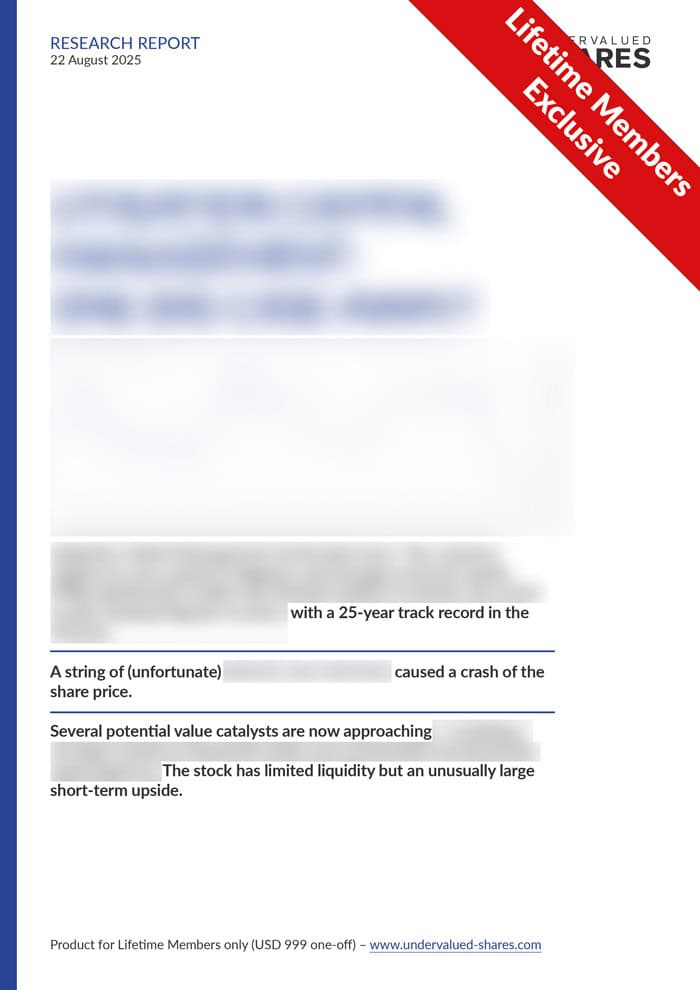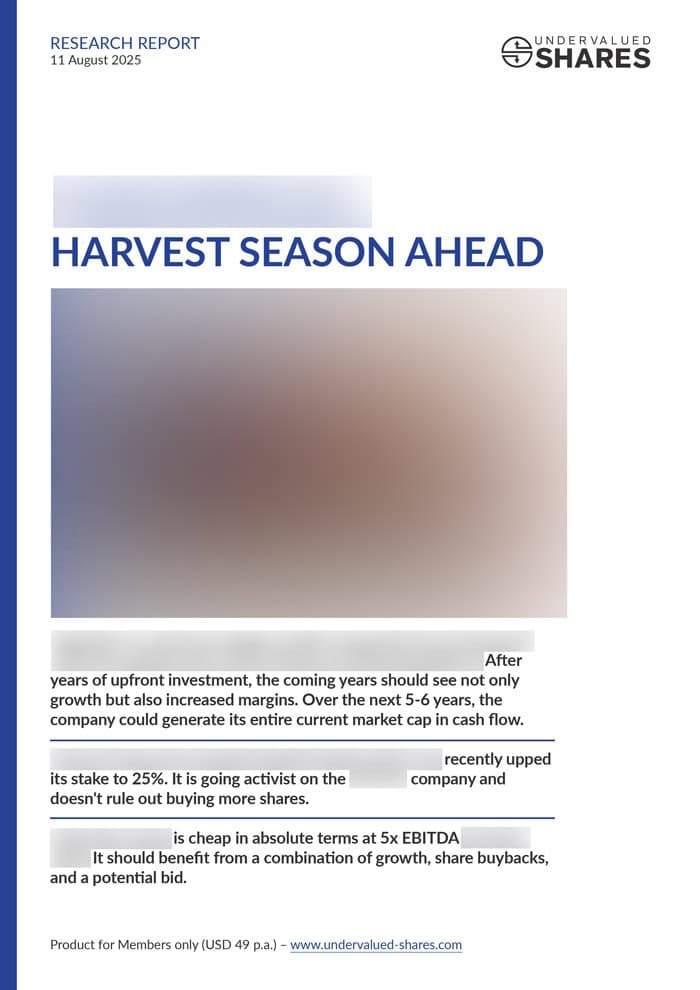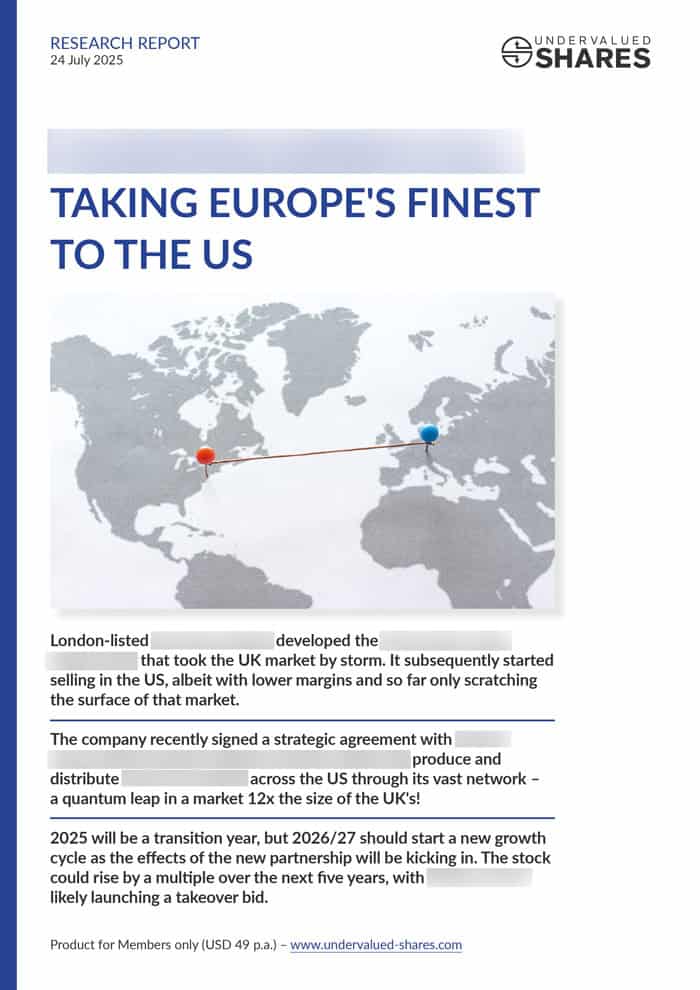Seaport Entertainment Group is a NYSE-listed play on the revival of New York’s southern tip. I visited the neighbourhood to evaluate the opportunity.
Virgin Galactic stock price goes hypersonic – 6 valuable lessons learned
Since autumn 2019, the stock price of Virgin Galactic (ISIN US92766K2050) has rallied, from USD 10.35 up to USD 42.49. That's a 311% gain at its peak since I published a Weekly Dispatch about the company. The performance during this period outshone even that of Tesla (ISIN US88160R1014). The chart of Virgin Galactic stock is a sight to behold. How often does one get to see such a graph?
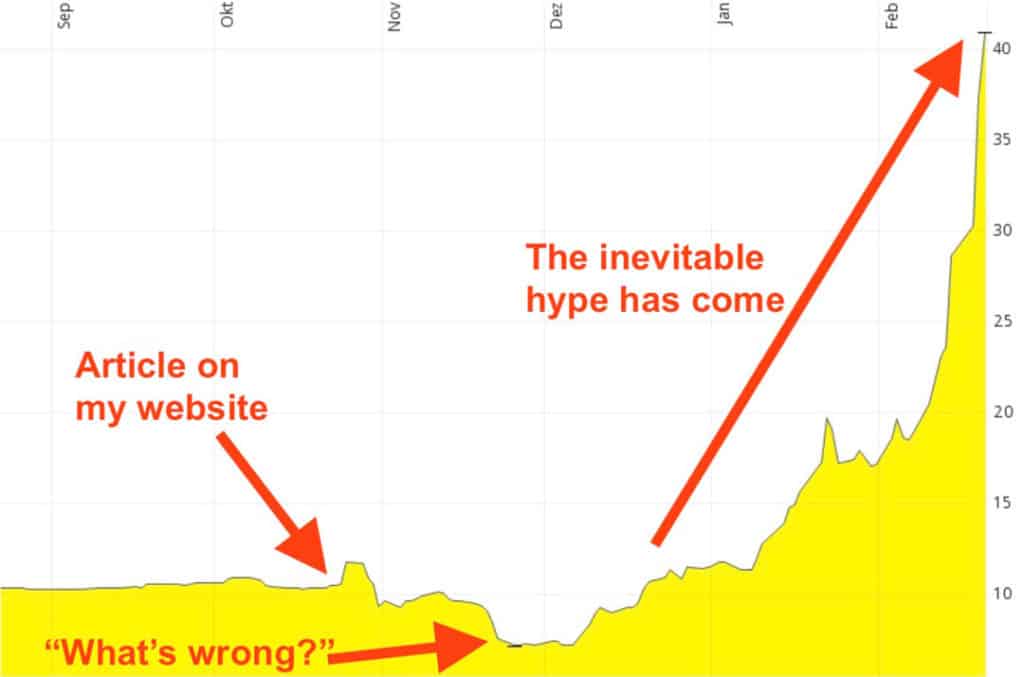
18 October 2019 Weekly Dispatch: "The June 2020 launch date is … confirmed. Imagine the potential public interest during the last two or three months leading up to the date. … The company could become a global phenomenon."
Following emails from readers, I have decided to provide you with another look at the situation.
Before I do so, here is an important general point that I'd regularly like to point out to my Weekly Dispatches readers.
I don't usually provide ongoing reporting about companies that I mention in this free weekly column. As my FAQs set out, my reporting is split between two products:
- The free Weekly Dispatches, which you are reading right now. These columns contain random, irreverent musings about a wide variety of subjects. While I sometimes write about specific companies, I don't promise any form of ongoing reporting about any particular subject. The Weekly Dispatches are my brain dump.
- In-depth research reports, which I provide to the paying Members of my website. These reports provide ongoing coverage about specific stocks. If a company makes it into one of my research reports, you can be sure that I am 100% convinced of its investment case. Access to my very best investment ideas is just USD 49 p.a.
Virgin Galactic was a compelling story at the time, but it didn't cut the mustard for justifying an in-depth research report for my Members. My website's focus is undervalued companies that offer long-term capital growth with limited risk. Virgin Galactic, on the other hand, is pure venture capital. It's a pre-revenue company that has yet to serve its first paying customer, and it could (quite literally!) blow up. Fun to follow, but not the serious investment that I focus my research reports on. Which is why it ended up in my Weekly Dispatches only.
When I published my long-read article, hardly anyone had the company on their radar. That changed quickly, and "SPCE" (as its ticker symbol goes, a play on "space") is now one of the most talked-about companies of the US market, if not worldwide. If you want an updated assessment of the company, there are now many resources available to you, including research reports by investment banks, and active chat board discussions. Pretty much anything that could be said about the company has by now been said by several other market commentators.

Virgin Galactic mentioned prominently on one of the world's largest news aggregator websites.
Where I can provide much more value to you is a list of investment lessons that we can draw from the peculiar case of Virgin Galactic.
Fasten your seat belt, and check the following list six lessons learned. Some of them might offer you a few new perspectives, or help you improve your investing skills.
1: Nothing is as powerful a wealth creator as an idea whose time has come
Stock prices are not just driven by the underlying company's fundamentals, but also by general public interest and media hype.
Some entrepreneurs have a brilliant idea with the best of prospects but can't get any investors interested in backing them because no one is aware of that market's potential. Most people simply won't eat what they have never seen before (which the Germans very vividly describe as: "Was der Bauer nicht kennt, das frisst er nicht.").
Other entrepreneurs end up with a disproportionate amount of investment thrown at them, simply because their company's vision ties in with the existing beliefs of many people. It's easier to attract investor interest if the investment case ties in with the existing expectations of a large number of potential investors. Such an investment case is akin to pushing on an open door.
The success of Virgin Galactic since its listing on the stock market can easily appear like it was destined to happen. Indeed, my column from October 2019 mentioned that media hype in the lead-up to the first space flight with paying passengers was likely going to lead to the kind of development that we have now witnessed.
However, it's easy to forget that these past few months of rapid ascent were preceded by ten years of lacklustre performance. Virgin Galactic has been around since 2004, and it had struggled for most of the ensuing 15 years. Between 2010 and 2018, its value only increased from USD 1bn to USD 2bn. Any investment in the Dow Jones Index would have done a lot better than that, and with lower risk. Remember when one of Virgin Galactic's pilots died in a crash? It has been a high-risk venture for investors, who did not do particularly well until the company's IPO.
As I never tire to mention to anyone in their 20s and 30s, it pays to have been around for a bit. A few decades of experience to look back on does provide you with a useful perspective. As long ago as the late 1990s (!), I had been meaning to write the ultimate investment research report about "Investing into the Space Frontier". A folder with suitable research material has been sitting on my hard drive for two decades. I never wrote it because I felt the timing was too early and the industry was not yet taken seriously. Also, there were hardly any investible companies, apart from some dubious penny stocks.
Fast forward to 2019/2020, and the idea of investing in the space industry has finally fallen on fertile ground:
- The global entrepreneur superstar, Elon Musk, has popularised the subject like no one before him, through his SpaceX venture and his talk of wanting to live out his final days on Mars.
- The industry used to be dominated by NASA and other governmental agencies. During the past few years, the general boom in venture capital has led to about a thousand (!) private space companies coming into existence. Finally, there are at least some viable companies to invest in.
- During the past two decades of rapid technological change, millions of investors have missed out on making 100 (or 1,000) times their money by backing futuristic concepts. Nothing is quite as frustrating as having missed out on something. As a consequence, many people are now desperately looking for "the Next Big Thing". Investing in transformational companies and ideas has become hip, and many private investors aspire to be part of it. Virgin Galactic is the kind of "moon shot" (no pun intended) that everyone hopes to be a part of once during their investing career.
Could anyone have timed these developments in advance?
Latching on to big ideas just before they are about to become popular is part of the art and science of successful investing. It's all about getting your timing right. You've got to capture an investment theme just as it is about to take off.
Virgin Galactic is a textbook case study of the power of an idea for which the time has – finally! – come. In a way, Virgin Galactic just achieved the kind of capital growth that it should have achieved during the past ten years – but it did so in the space of only three months! When that tipping point is reached, investors can make an absolute fortune in a short time.
Timing it is where the difficulty lies. Just ask Richard Branson about it (see point 3).
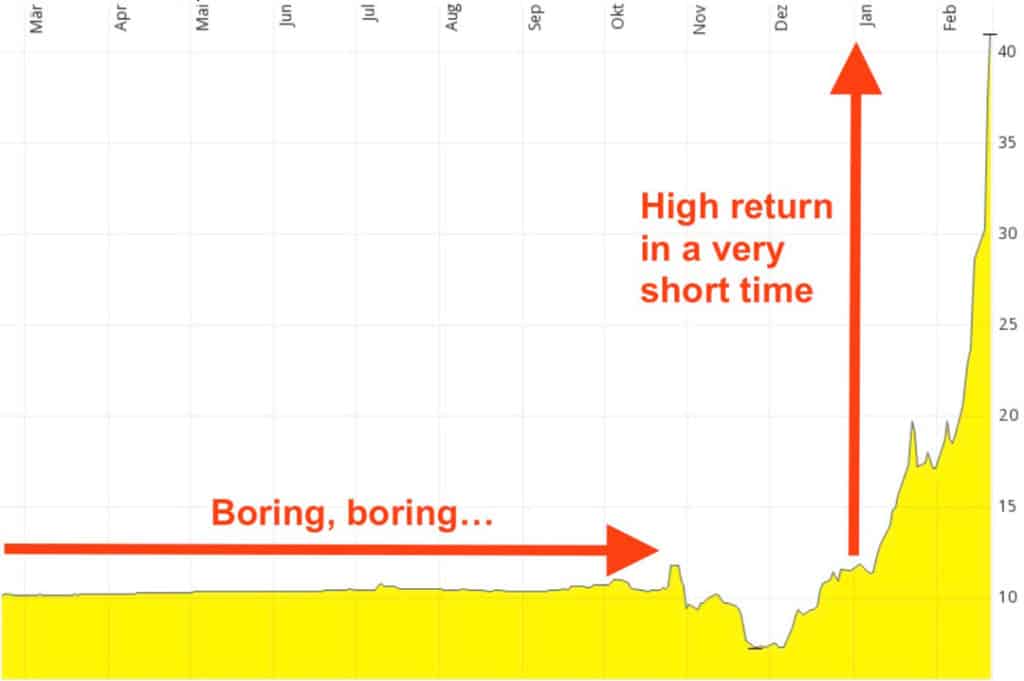
Good stories can lie dormant for a long time.
2: Markets can turn on a dime
If the stock market was a person, it would be a manic depressive.
My article came out five days before Virgin Galactic listed on the stock market through a so-called "reverse merger". A Nasdaq-listed entity, then called Hedosophia Social Capital, merged with the existing Virgin Galactic entity and subsequently changed its name - an IPO through the back door (though a more descriptive term would be "recycling a listed shell company"). Hedosophia Social Capital only held a large cash balance and did not have a business of its own. The merger with Virgin Galactic breathed new life into the empty shell.
Following the merger and the change in name, the share price shot up from USD 10 to USD 11.79. At the time, the sentiment was positive, and the company seemed to be off to a good start.
The stock price then dropped to as low as USD 6.90 in the space of just five weeks. That's a loss of 42% in a very short time. Ouch!
Looking at chat board messages from this period is fun. Sentiment had changed so drastically that some of the more critically-minded observers predicted the stock to go down to USD 5, or USD 2! Some even mentioned the prospect of bankruptcy. There was quite some gravitational pull on the stock.
It then took just another few weeks for the price to recover and get back to its previous record. Everything went back to normal, and again within a short period.
From there onwards, it was just another six weeks before the company reached a euphoria-driven all-time high of USD 42.49. That was equivalent to more than six times its November 2019 low. In the meantime, a research report by JP Morgan had mentioned a possible price target of USD 60. All of a sudden, the sky seemed the limit.
There is quite a difference between investors expecting the price to go as low as USD 2, and other observers expecting it to go as high as USD 60. Both of these scenarios were bandied about recently, and both seemed to have something going for them. It's extraordinary how fast sentiment for any particular company can change. It is a particularly extreme example, but there are plenty of lessons to be drawn.
The most important lesson from this case is that you must never read too much into short term stock price fluctuations. The price dip in November 2019 could have easily been interpreted as something being fundamentally wrong with the company and its investment case. In reality, nothing was wrong, and the short-term fluctuations were just that – a short-term fluctuation without too much actual meaning.
Often, the stock price makes the news rather than the other way around.
3: Insiders are only humans, too
I am a big fan of insider purchases. If a company insider is putting a large amount of money of his or her own money behind buying more stock, then that's something to take notice of.
Equally, as I am the first to admit, insider transactions have their limitations - all the more so when they concern insider selling. Historically, insider purchases are a much stronger and more reliable indicator than insider selling. In some instances, large insider sales can even be entirely meaningless.
Richard Branson, the long-time sugar daddy of the Virgin Galactic project, sold a large number of Virgin Galactic shares for a price of USD 10 each. He and his co-investors cashed out USD 300m when the reverse merger took place. Technically speaking, this was a placement of shares as part of an IPO. In reality, it was also a considerable insider sale.
In retrospective, Branson's move looks like a poorly timed decision. Had he waited just a few months longer, he could have sold these shares for a multiple of the price. Instead of getting USD 300m, Branson and his co-investors could have cashed out a cool USD 1.2bn.
Even a multi-billionaire, multi-entrepreneur like Richard Branson doesn't have a crystal ball. I doubt he had foreseen just what a meteoric rise the stock was in for.
Insider sales, in particular, can be a lot less conclusive than they may seem to be. That's true even for significant-sized ones. It's important to follow insider transactions to avoid missing out on vital clues. However, insiders are only human beings, too. Their actions do not provide infallible trading signals.
What's more, there is also always a broader context to consider. In this particular case, without the insider sales, there would not have been a stock market listing with liquid trading – without which the rise in stock price would have never happened in the first place.
Rules are useful, but every investment case merits its individual evaluation.
4: Learn the difference between investing and speculating
One of the factors that enabled the wild price swings of Virgin Galactic is the company's lack of an actual business.
Or as my article called it, it's a "concept stock".
Its space ships are not ready yet to provide an ongoing commercial service. The company does not earn any revenue yet.
There has not been a single paying client yet. Wannabe-astronauts placing deposits don't count, because deposits aren't revenue (yet).
Virgin Galactic's plans to eventually use its technology for building hypersonic passenger jets are but a futuristic vision at this stage.
For someone as old-fashioned as myself, investing is primarily about buying the dollar for 10 cents. I don't want to buy into someone's future plans and worry about them working out. Instead, I want to buy into a company that is already a valid, functioning enterprise – but whose stock is currently available at too low a price.
On my books, buying into Virgin Galactic is speculating.
Which doesn't mean that I wouldn't invest in forward-looking companies (I proved as much when I published a report about a German software company which I believed to be a "100-bagger" – the stock has since gone up by 134% in just five months).
Everyone will have their own definition of "investing" and "speculating". I myself prefer a decent margin of safety over an investment in a company that could end up going out of business altogether. For me, investing is also very much about avoiding bad decisions.
5: You CAN be ahead of the crowd
I feel incredibly passionately about the following point, and it's the raison d'être of Undervalued-Shares.com.
Diligent research and careful thinking enable you to be ahead of the crowd; anybody who tells you otherwise is dead wrong.
Virgin Galactic is a model case to illustrate my point:
- All the necessary information was out in the public domain. No one bothered to check it, though, primarily because it mostly came in the form of convoluted legal documents. So many people nowadays have a concentration span that is geared towards reading colourful PowerPoint presentations or watching short video clips. Few have the ability to read a 500-page legal document. That's where you can gain an edge (if only by letting me do the slog for you).
- Figuring out where this company was going to go wasn't all that difficult. Would the investing public latch on to a space tourism company once there was a chance to invest in it? Space exploration is one of mankind's ongoing fascinations, and there are millions of people who dream of being part of such an enterprise. I described all this in quite some detail in my October 2019 article. The current hype had a very high likelihood of happening.
- You didn't even have to go to the netherworld of illiquid small caps to find something the market had not yet caught wind of. The stock of Hedosophia Social Capital had a fairly liquid market given its market cap of USD 600m at the time. Good investments do hide among liquidly traded stocks.
The biggest challenge, in my view, is the sheer amount of information that one has to sift through to find such opportunities.
Globally, there are probably about 100,000 companies which you can buy into and sell stocks through a recognised stock exchange.
Finding the ones that deserve a closer look is hard work and requires a bit of experience.
However, opportunities are out there. Probably many more than anyone of us would expect. With the right analytical skills, hard work, and some real-life experience, anyone can be ahead of the crowd and beat the market.
My thesis in this regard goes against a lot of conventional wisdom and academic research. E.g., "A Random Walk Down Wall Street" is a legendary book which claimed that everything that is known to man has already been priced into stocks. I suggest that if anyone ever gets you a copy of the book, safely dump it into the next recycling bin.
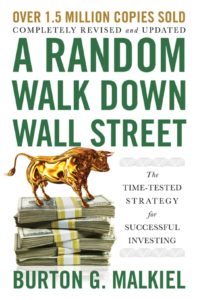
Wrong, wrong, wrong.
6. The stock market as a tool for teaching you about the world
You probably wouldn't be one of my readers if you didn't already believe this statement to be true.
Outside of wanting to make money and grow your nest egg, there is something innately fun about following interesting companies and learning what's happening in the world.
Space tourism!
Hypersonic travelling!
The prospect even of populating other planets. Mankind's great leap forward.
Had I not analysed Virgin Galactic, I would never have learned about all these exciting developments. Much as I wouldn't spend USD 250,000 on a selfie in space, I would love to be able to fly between Europe and the US in an hour or two. Memories of my flight on Concorde in 2003 are still vivid enough for me to be rooting for Virgin Galactic to eventually bring rocket speed to commercial aviation. London to Sydney in three hours? Bring it on!
It's fun to use investing to learn about what is going on in the world. Given how much I enjoy the learning process as well as writing about it, I hope to continue this website for many years to come.
More ideas and concept stocks along the lines of Virgin Galactic are bound to come your way. However, the meat of Undervalued-Shares.com will always be "investing" rather than "speculating". Even Virgin Galactic's parabolic rise isn't going to change that!
Did you find this article useful and enjoyable? If you want to read my next articles right when they come out, please sign up to my email list.
Share this post:
Get ahead of the crowd with my investment ideas!
Become a Member (just $49 a year!) and unlock:
- 10 extensive research reports per year
- Archive with all past research reports
- Updates on previous research reports
- 2 special publications per year



